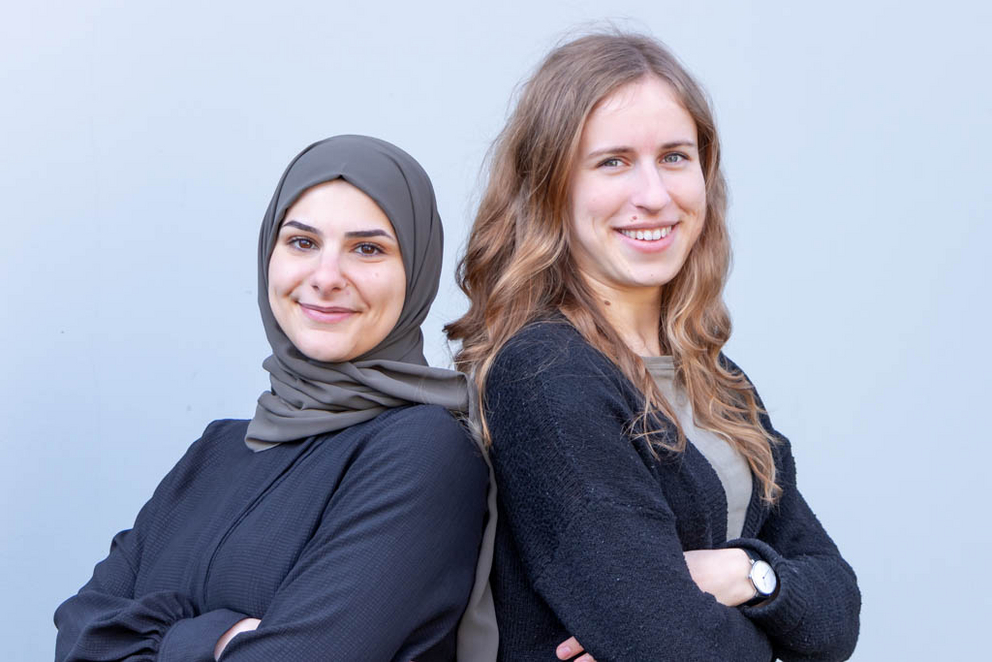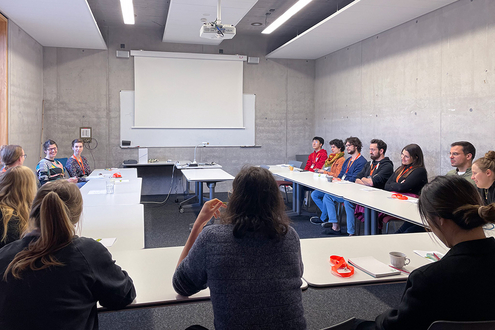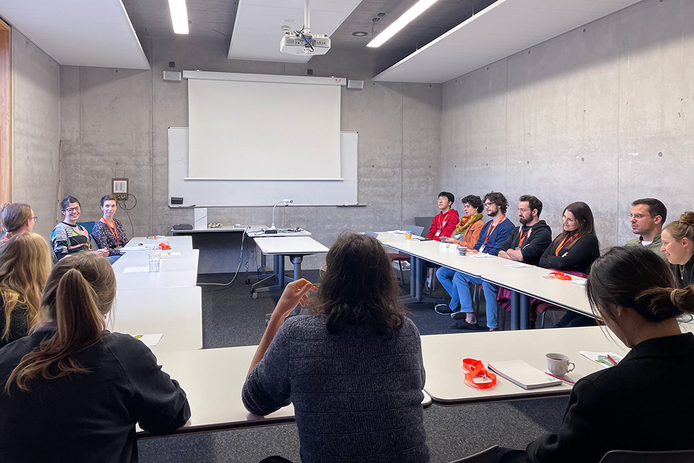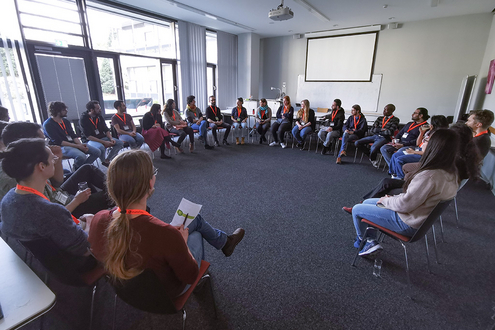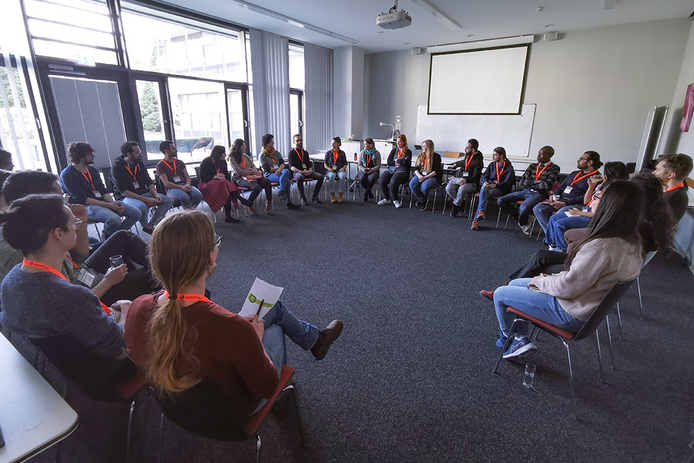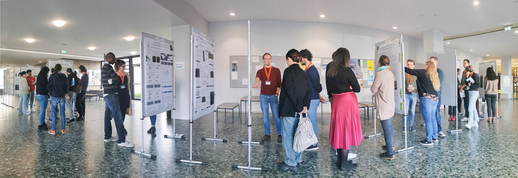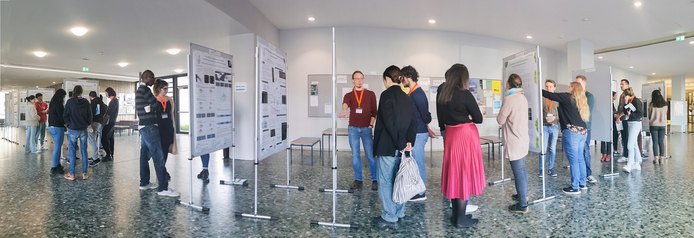For such an event, especially with such different programme points that are spread over two days, there are so many things to be considered in advance. Did you know what you signed up for?
Both (laughing): No!
Seinab: We thought it’s going to be difficult… but not that difficult. It is literally exhausting! Especially because we had to organise so much ourselves.
Did you get support?
Sophie: We had two student assistants, Nicolas and Caro, who helped us during the event. They had everything under control while we were chairing the talks. And, especially during the week before the symposium, everyone in our group asked “How can I help you?”, so we got support from our colleagues. Our secretaries, Anja and Brigitte, also helped us navigate the German bureaucracy.
Seinab: Financially, we had support from our sponsors. CIBSS sponsored the keynote talk, the University’s PhD representatives financed the catering. Roth and the Kleine-Vehn research group funded the workshops. Biozym gave the three best poster awards and Eurofins Genomics the lanyards.
What did you yourself gain from the event?
Sophie: That if you need support, you need to ask for it. And I think we had and still have to learn that. We tried to take everything on our shoulders, to prove ourselves that we are capable to do it.
Seinab: Sophie and I really had each other’s back. Organising such an event is difficult, but it is a way to test how capable you are. It was a really nice experience, and it is so great to see that people are happy. It brought us joy to see them enjoy their time.
Would you do it again?
Sophie: Yes!
Seinab: Yes, definitely! Although is was a bit difficult, but it was worth the experience, and it was fun.
Do you have anything planned?
Sophie: Next year, the DOMPS Symposium is planned again – we want to make it a yearly event. It is already clear that another group will take over. We knew that this should be a recurring event, and that the responsibility would always switch between the department’s research groups. This way, we will finish our PhD before the round passes to our group again (laughs).
Seinab: And it will be easier from now on, because a lot of things are already established. For example, the website, the Twitter account and the connection with the sponsors.
How much time did you spend preparing the event?
Sophie: We first discussed the idea in November, but the real work started in January. So, it was about two and a half months. The most hard-working part was the last two weeks. This was when everything came at once. Also, because it was overlapping with the CIBSS Symposium that we attended, which we took a lot of inspiration from. We constantly found things that we also wanted to do. So that was really inspiring – but then it also got really stressful.
How did you split up the tasks? You even set up a website and a Twitter account, prepared your own talk. How did you juggle all that?
Sophie: Well, we did everything together. But we split up some of the tasks so that both of us could do the things they can do best. I did everything informatics-related, created the website, and tried to automate as much as possible.
Seinab: I did the talking, communicating with the workshop coaches, sponsors and secretaries. We also did the catering, which means I had to come very early to brew coffee and we still had to take care of everything in the evening, this made both days very long for us. Besides that, I had a scientific presentation and chaired the sessions. It was exhausting. But knowing that we are there for each other made it way easier.
Did you still work in the laboratory?
Sophie: We still found time to work in the lab, but not in the last two weeks before the symposium.
Seinab: But now, after the event, we are so happy that we can do experiments again and go fully back to our normal life!
And did you reach your aim? To connect everyone?
Seinab: Yes, totally. I think it really made a difference. Today, again, all PhD candidates had a coffee break together. I think it really had a lasting impact on our department.
Sophie: For example, now, if I want to do an experiment, I know which group might have experience with the technique, and I know immediately whom I can ask. And that is one of the things what we wanted to achieve.






